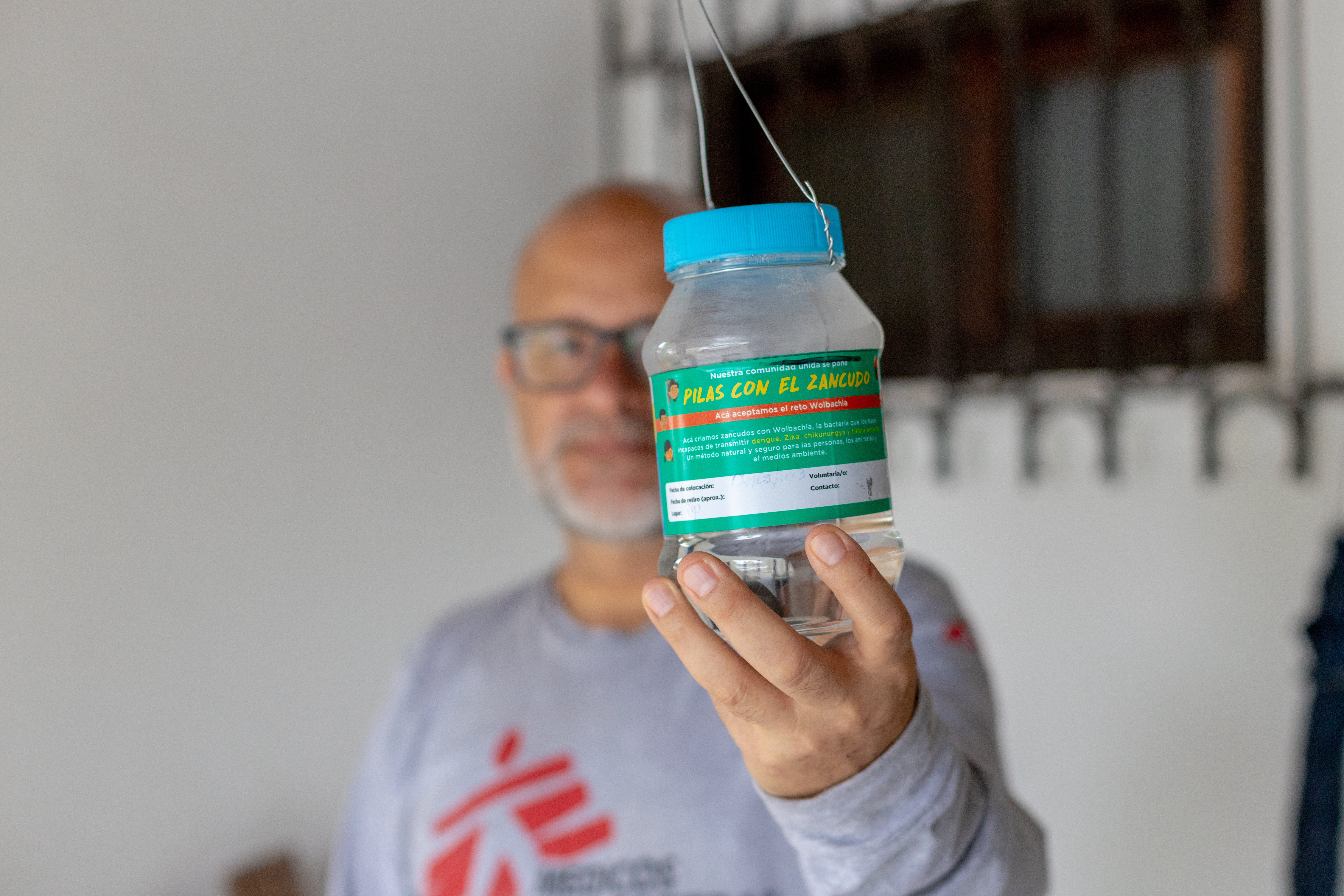
2 minute read
Fighting dengue
Half the world’s population is at risk of dengue fever – and it’s expected that another billion people will be exposed to the viral infection in coming decades due to climate change. Dengue, which is transmitted by mosquitoes, is reaching alarming levels in Honduras, with around 10,000 cases reported this year.
MSF has partnered with local communities, the Honduran Ministry of Health and the World Mosquito Program, to respond in Tegucigalpa in an innovative way: with mosquitoes! When Wolbachia bacteria is introduced to mosquito eggs in a laboratory, the bacteria makes it harder for viruses to reproduce in the mosquitoes; the adult mosquitoes then don’t transmit arboviruses. MSF teams worked with the community to grow and release Wolbachia mosquitoes, which will eventually replace the existing population of mosquitoes and reduce the spread of dengue.
Widespread community engagement and support for the initiative has been key to its success.
“Many people have accepted that dengue fever is something they must live with but with this project we want to show there’s another way to lower the level of dengue in our neighbourhood,” said Sandra, a local resident who is assisting MSF’s efforts.
A staff member holds a jar containing Wolbachia mosquito eggs. Community members release the adult mosquitoes weekly over six months, helping to establish Wolbachia in the mosquito population. © Martín Cálix









